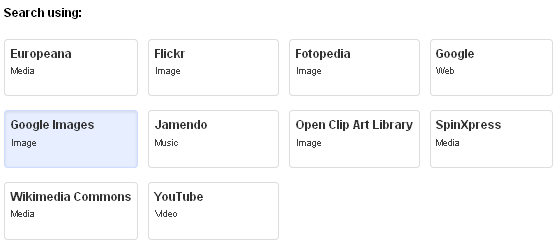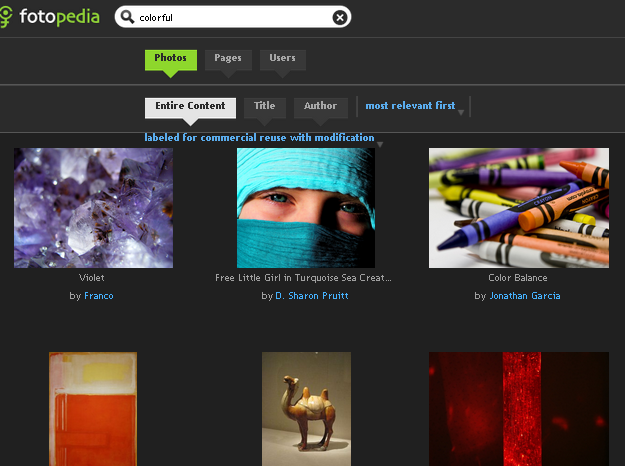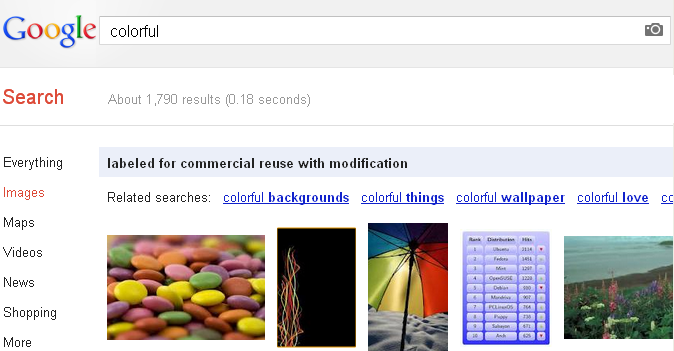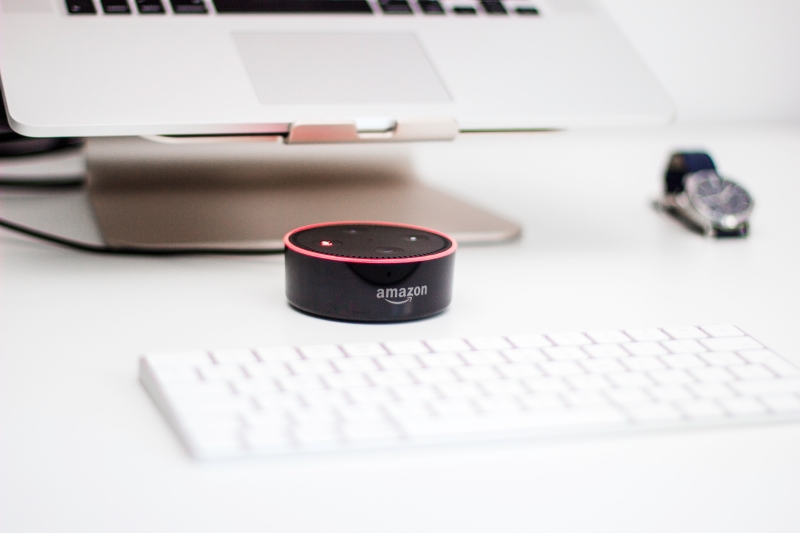Cheerfully colored or classic black-and-white, sophisticated or plain, images enhance the impact of the written content, stirring your readers’ interest.
I am not a bad photographer myself, but my family, friends and fishing themes never seem to find their place with the content I write. So, it’s only common sense for me to use images that are the work of professionals.

You’re probably suspecting I had fun looking for this picture. Well, this time I actually did!
Let me tell you about a smart tool I recently discovered, that helped me save precious time when searching for images. It all started with…
The Problem
Every time I prepared a new article, finding the perfect image proved to be an exhausting task. I had to go through several resources and set up tons of search filters, hoping that the images I liked would meet my three republishing criteria:
- Be meaningful for the content
- Have a decent quality and size for the blog; and
- Be free for share and reuse
As you can imagine, a lot of the pictures I found to be relevant for my articles had some restricted republishing rights, or, to my frustration, they were too small for reuse.
The Solution
… came up unexpectedly. I learned about the search tool that Creative Commons provides while reading through the comments section of an interesting article on the Portent Blog.
This tool reunites several search services for different types of content, like Images, Videos and even Music, returning items that are labeled for reuse.

It’s a gold mine for content writers, if you ask me 🙂
How it works
After you enter your term in the search box, just click on the resource that is relevant for the type of content you need and hit Enter. Then Creative Commons runs the search directly with the relevant privacy filters applied.
Switching to a different resource is very simple if you are not happy with the results returned.
For example, to find the image for this blog article, I typed colorful and selected first the Google Images service.

But the images I found were not exactly what I needed, so I returned to the search window and clicked on Flickr.
The query on images licensed for commercial use was performed instantly, without me having to go directly to the search service page and set up the filter manually.
Once I decided which image to choose from the search on Flickr, I saved it along with the author’s credits to be mentioned in the article.
Easy as pie!
Image Search Services available
Now that you’ve seen how to quickly find free images you can share, let’s take a look at the three most important search services that you have access to with Creative Commons:
1. Flickr
This is a photo management service owned by Yahoo!, that currently has over 5 million items shared. Besides high quality pictures of real life items, you can also find here graphic works that are very useful to render abstract concepts.

2. Fotopedia
This is a photo encyclopedia designed for photographers all over the world to promote their content. At this point, it gives access to 700,000+ images which approach a wide variety of themes.

3. Google Images
This search service is provided by Google. If the previous two services also host the images they provide, Google Images is not a resource in itself, but an engine that returns Image results from millions of sources it indexes.

Of course, there are several other search services that you can prospect with Creative Commons, but these three are the most relevant for finding images.
Regardless of the source you choose, running the searches through this tool will provide results that have the “labeled for commercial reuse with modifications” filter applied.
Conclusion
With so many free image resources available just one click away, finding visual elements that boost the value of your written content becomes a child’s play.
An alternative to using free images from search services is to make your own photos for the products, services or concepts you write about. I’m planning to use one of mine someday… when I find a way to blend SEO and fishing 🙂
In the meantime, to show appreciation for a professional’ s work, it is a good practice to give credit to the author of the content shared.
Photo credit: Vectorportal



25 comments
This is nice! I am quite fond of Fotopedia and Flickr, but didn’t know about this search tool that blends them all together. thanks…
I like Flickr a lot, especially because of those graphic images you mention. Didn’t know about Fotopedia thoiugh 🙂
I am glad you both like this tool 🙂 It’d be interesting to
know what other image resources you are using in your day to day work
Great find on the CC search. Definitely going to use this moving forward for locating images for my blogs. Thanks!
Those are some great tools. I like to go to a site called google.com/images, find my image, right click, “save image as”. It works every time…
My question is, I can upload a copy of the image to my own hosting, correct? Possibly a noob level question, but I’m just covering my bases.
I think this depends on the requirements specified by the owner. For example, with the image I used, it is mentioned that you can download it from Vectorportal
Thanks for sharing the CC Search Tool and your insights.
That’s great. What about the copyright? Is this safe to use the images from all these sources?
In most cases I came across, owners of the images found through the CC Search indicate their condition for reuse (on the photo I used from Flickr, the owner requested credit with link to a specified URL).
But, as always, if you have any doubts, the safest way is to contact the owner directly and ask for permission
Thanks for the advice.
Good question asked about copyright..If you know about SOPA..If I take image from website and paste into my blog so Google consider as a image spam or original image.
I did some research on this, and I have to admit my sherlock holmes skills were not very resultful in answering your question. Discussions I found on forums don’t lead to a clear conclusion on Google’s way to analyze an image it finds on different website sources.
However, in my understanding, as long as the image you use is labeled for commercial use, this may act like an agreement between two parties: the owner on the one hand, and you, as the subsequent user, on the other hand.
The way Google interprets the use of the image on different sources is a different matter that, in my opinion, affects more the cases where the image is used without permission.
Thanks for the CC search link, I never knew it existed.
I’m really glad I came across this article. I’m always worried about if the images, videos, and music I use are legit to use on my website. This definitely was helpful and I’ll be using CC starting today!
Thanks again,
Phil Sanko
Thanks, there are not many tools to help you on the search for the right image to post into your blog.
Nice help! Google images is going better everyday!
This is brilliant, thanks. Ive always struggled for images!
Surprised Compfight.com wasn’t mentioned here? Pretty much the best tool for finding CC images via Flickr quickly.
Hi Kevin,
Actually, I did come across Compfight when researching for tools to use in-house, for our blog.
I personally prefer the Creative Commons search. It gives me access to more resources labeled for reuse, not just images from Flikr. But when you have your mind set on Flikr images form the start, Compfight looks like a good tool.
advanced webranking is really advanced in all respect
I’d still go for some paid images through i stock photo, etc as well, great selection and smaller sizes reasonably priced.
Nice post. But I mainly use photodropper. Easy, user friendly and gets the job done.
-Mohamed
Thanks for compiling this list, Aura! I’d also recommend http://snappygoat.com/ — it includes over 12 million free, downloadable public domain and cc0 images in one searchable database.
Thanks a lot! Until I starting creating my own images, this will be a lifesaving trick.
Comments are closed.